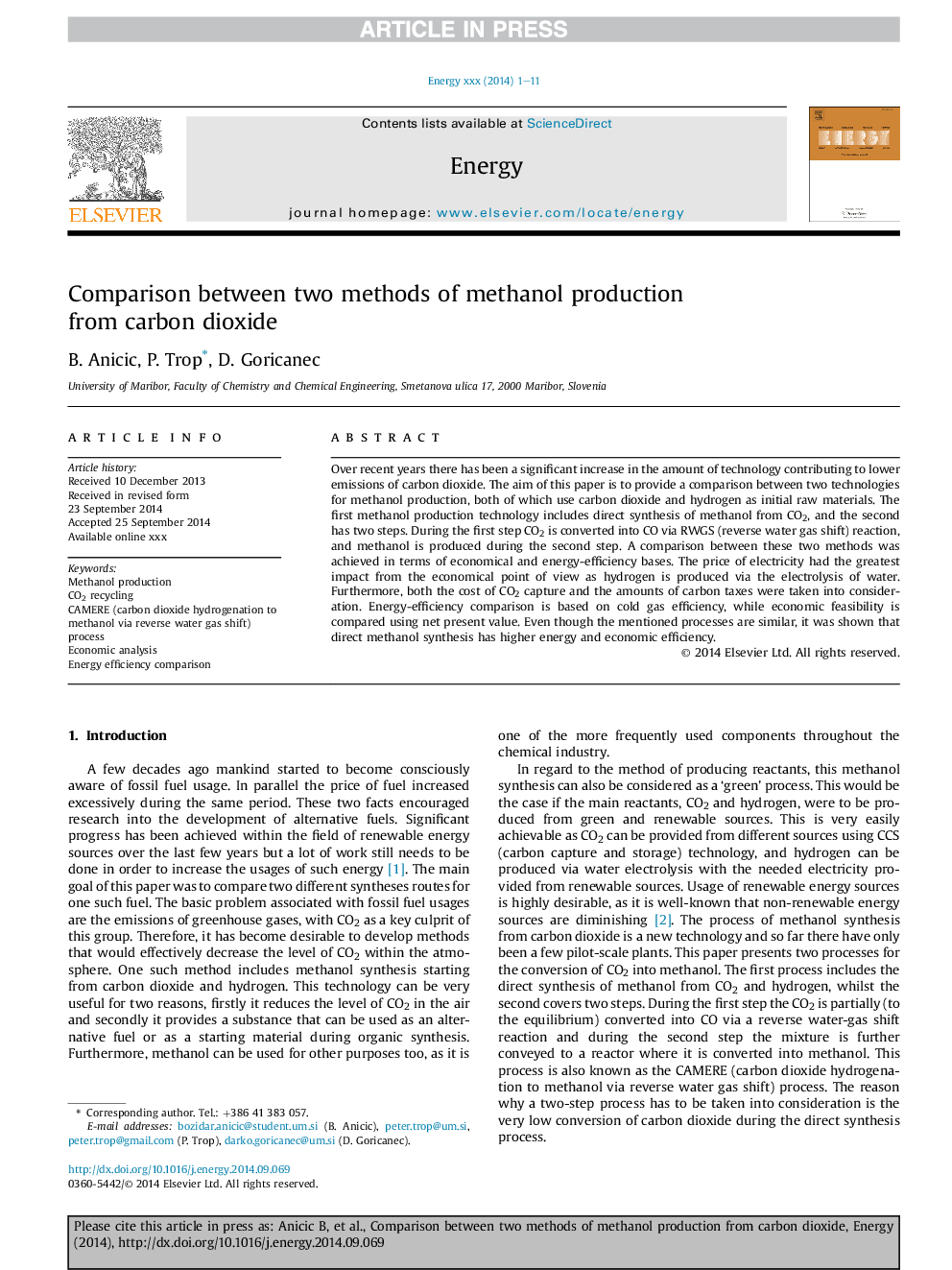| Article ID | Journal | Published Year | Pages | File Type |
|---|---|---|---|---|
| 8076352 | Energy | 2014 | 11 Pages |
Abstract
Over recent years there has been a significant increase in the amount of technology contributing to lower emissions of carbon dioxide. The aim of this paper is to provide a comparison between two technologies for methanol production, both of which use carbon dioxide and hydrogen as initial raw materials. The first methanol production technology includes direct synthesis of methanol from CO2, and the second has two steps. During the first step CO2 is converted into CO via RWGS (reverse water gas shift) reaction, and methanol is produced during the second step. A comparison between these two methods was achieved in terms of economical and energy-efficiency bases. The price of electricity had the greatest impact from the economical point of view as hydrogen is produced via the electrolysis of water. Furthermore, both the cost of CO2 capture and the amounts of carbon taxes were taken into consideration. Energy-efficiency comparison is based on cold gas efficiency, while economic feasibility is compared using net present value. Even though the mentioned processes are similar, it was shown that direct methanol synthesis has higher energy and economic efficiency.
Related Topics
Physical Sciences and Engineering
Energy
Energy (General)
Authors
B. Anicic, P. Trop, D. Goricanec,
